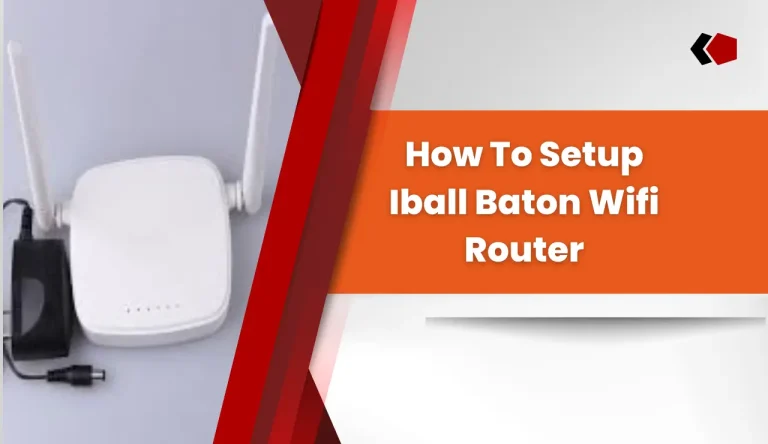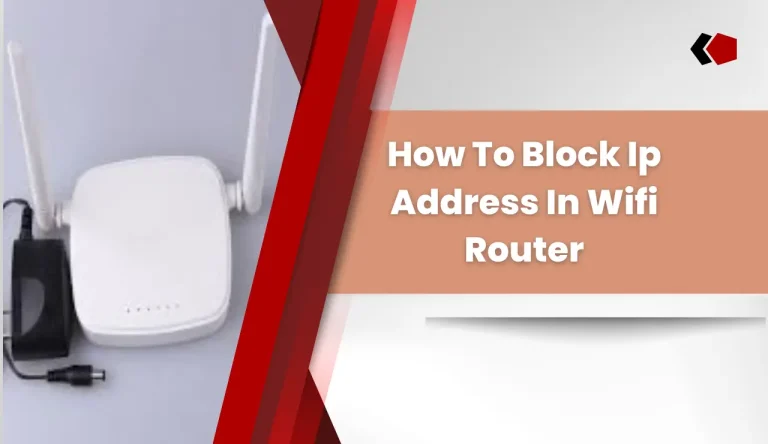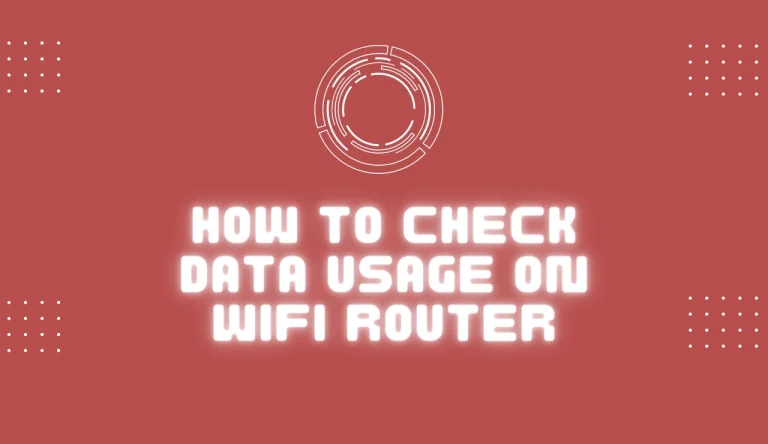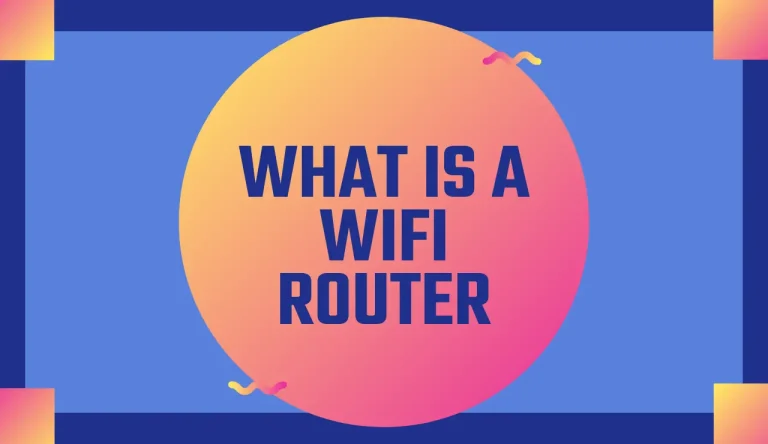Can Wifi Routers See What You Search
Are you concerned about the privacy of your online activities? Do you ever wonder if your WiFi router has the ability to see what you search on the internet?
In this article, we will explore Can Wifi Routers See What You Search? and fascinating world of WiFi routers and their potential to track your online activities. WiFi routers are an essential part of our daily lives, allowing us to connect multiple devices to the internet wirelessly. But how exactly do they work, and can they potentially invade our privacy? We will delve into the technical aspects of how these devices operate and transmit data.
Data privacy is a critical concern in today’s digital age, with various entities seeking access to our personal information. But can WiFi routers really track your online activities? We will examine whether these devices have the capability to monitor your browsing history or read your emails.
To ensure that your privacy remains intact, we will provide you with practical steps and additional security measures that you can take to protect yourself from any potential intrusion. Lastly, we will discuss privacy concerns and legal considerations surrounding WiFi routers.
Join us on this informative journey as we uncover the truth behind whether WiFi routers can indeed see what you search on the internet.
Key Takeaways
- WiFi routers cannot decipher search content or browsing history
- Data privacy measures ensure secure and private information
- WiFi routers can monitor and record online activities without user knowledge
- Concerns about WiFi router tracking include invasion of privacy, targeted advertising, security risks, and surveillance potential
How WiFi Routers Work
Did you know that WiFi routers can actually see what you search? Understanding how WiFi routers work is essential to grasping this concept.
When you connect to a WiFi network, your device sends data packets to the router, which then forwards them to the internet. But in order to do so, the router needs information about your device and its configuration. This includes details like IP addresses and DNS settings.
If there are any issues with your WiFi connection, such as slow speeds or frequent disconnections, troubleshooting these problems often involves accessing the router’s settings through a web interface. However, while routers can see some of your network activity, they cannot specifically decipher the exact content of your searches or web browsing history.
To better protect your privacy online, it’s crucial to understand data privacy measures and take necessary precautions.
Understanding Data Privacy
To grasp the concept of data privacy, it’s crucial to understand how our online activities remain confidential even in the age of advanced technology.
When we connect to the internet through a WiFi router, our personal information is transmitted as data packets. These packets contain details about our online activities, such as websites visited and searches made. However, data privacy measures ensure that this information remains secure and private.
Encryption techniques are used to scramble the data packets, making them unreadable to anyone without the proper decryption key. Additionally, websites that handle sensitive information utilize secure protocols (such as HTTPS) to further protect user data from being intercepted or tampered with during transmission.
So even though WiFi routers can see the data passing through them, they are unable to decipher its contents due to these security measures.
Next, let’s explore whether WiFi routers can track your online activities…
Can WiFi Routers Track Your Online Activities?

WiFi routers have the ability to monitor and record your online activities without your knowledge. This raises concerns about wifi router privacy and online tracking. Here are four reasons why this is an alarming issue:
- Invasion of privacy: Your browsing history, search queries, and even personal information can be accessed by the wifi router.
- Targeted advertising: The data collected by your router can be used to deliver personalized ads based on your online behavior.
- Security risks: If a hacker gains access to your wifi router, they can potentially steal sensitive information or perform malicious activities.
- Surveillance potential: In certain cases, government agencies or other entities may use wifi routers as surveillance tools.
To protect your privacy from these risks, it’s crucial to take steps such as using strong encryption methods and regularly updating your router’s firmware.
Steps to Protect Your Privacy
One effective way to safeguard your privacy is by regularly updating the firmware on your router. By keeping your router’s software up to date, you can ensure that it has the latest security patches and bug fixes, making it less vulnerable to online tracking and unauthorized access.
Updating the firmware is usually a simple process that can be done through the router’s administration interface or by downloading the latest version from the manufacturer’s website.
Another important step in securing your personal information is enabling encryption on your Wi-Fi network. This will encrypt the data transmitted between your devices and the router, making it harder for anyone to intercept and view your online activities.
Additionally, consider changing the default login credentials for your router and enabling strong passwords to further protect against unauthorized access.
By taking these measures, you can enhance your privacy and security when using a Wi-Fi network.
To further strengthen your protection, there are additional security measures you can take…
Additional Security Measures
Implementing these extra security measures is like adding multiple layers of armor to your personal fortress, ensuring that your sensitive information remains well-guarded from potential threats. One essential measure is enabling router encryption, which encodes the data transmitted between your device and the router. This prevents anyone from intercepting and deciphering it without the encryption key.
Another effective security measure is using a Virtual Private Network (VPN). A VPN creates a secure connection between your device and the internet by encrypting all traffic that passes through it. This not only protects your online activities from prying eyes but also masks your IP address, making it more difficult for hackers to track you. By utilizing both router encryption and VPN usage, you greatly enhance your online privacy and protect yourself against cyber threats.
Moving on to privacy concerns and legal considerations…
Privacy Concerns and Legal Considerations

When it comes to privacy concerns and legal considerations, there are several key points that you should be aware of.
Firstly, Internet Service Provider (ISP) policies play a crucial role in determining the level of privacy protection you can expect.
Secondly, government surveillance laws have a significant impact on what information can be collected and accessed by authorities.
Lastly, data sharing and third-party tracking are two areas where your personal information may be shared without your explicit consent.
It’s important to understand these factors to make informed decisions about your online activities and protect your privacy.
Internet Service Provider Policies
Internet service providers can have policies in place that allow them to monitor and track the online activities of their customers. This is done to ensure network security, prevent illegal activities, and comply with government regulations. Here are a few examples of how your internet service provider may track your online activities:
- Data logging: Your ISP may keep a record of websites you visit, files you download, and emails you send.
- Traffic analysis: By analyzing the amount and type of data moving through their networks, ISPs can identify patterns and potentially detect suspicious or malicious activity.
- Deep packet inspection: Some ISPs use advanced technology to inspect the content of your internet traffic, allowing them to see what websites you visit and even read unencrypted messages.
- Targeted advertising: ISPs may collect information about your browsing habits in order to deliver personalized advertisements.
It’s important to be aware of these practices when it comes to internet privacy and online tracking. However, these concerns don’t stop at the level of your ISP – government surveillance laws also play a significant role in monitoring online activities.
Government Surveillance Laws
Now that you understand how your Internet Service Provider can monitor your online activities, let’s delve into another aspect of online privacy: government surveillance laws.
It is important to be aware that governments around the world have varying degrees of power when it comes to monitoring their citizens’ internet usage. These surveillance laws are intended to protect national security and combat illegal activities, but they also raise concerns about individual privacy rights.
In some countries, government agencies have the authority to access and collect data from internet service providers without a warrant. This means that your online activities could potentially be monitored and recorded by government entities.
It is crucial for individuals to stay informed about the legislation in their respective countries and take appropriate measures to safeguard their online privacy.
With this knowledge in mind, let’s now explore the topic of data sharing and third-party tracking…
Data Sharing and Third-Party Tracking

Furthermore, individuals must be aware of the implications of data sharing and third-party tracking on their online privacy. When it comes to wifi router security, it’s important to understand that routers can’t directly see what you search for on the internet.
However, they do have access to information about the devices connected to them and the websites you visit. This information can be used by third-party trackers and advertisers to create targeted advertisements or track your online activities.
To protect your online data, here are four important things to consider:
- Use a strong password for your wifi network.
- 2. Regularly update your router’s firmware.
- 3. Enable encryption protocols like WPA2.
- 4. Use a virtual private network (VPN) for an extra layer of security.
By implementing these measures, you can enhance your wifi router’s security and safeguard your online data from potential threats. Taking steps to secure your wifi network is crucial in protecting your privacy online without compromising convenience or connectivity.
Some Final Thoughts
In sum, it’s important to consider the potential privacy implications when using wifi routers and be mindful of the information that may be accessible to them. While wifi routers themselves cannot directly see what you search, they do have the ability to collect data about your internet usage, including websites visited and search terms used.
This data can then be shared with third parties for various purposes, such as targeted advertising or analytics. However, it’s crucial to note that this data collection and sharing should only occur with user consent and in compliance with privacy laws and regulations. To better understand the privacy implications of using wifi routers, take a look at the table below:
| Privacy Implications | User Consent |
|---|---|
| Collection of browsing history | Should be obtained |
| Sharing of data with third parties | Should be obtained |
| Potential exposure of sensitive information | Should be informed |
By being aware of these implications and exercising caution when connecting to wifi networks, you can help protect your online privacy.
Frequently Asked Questions
Conclusion
In conclusion, it’s important to understand that while WiFi routers have the capability to track some of your online activities, they are primarily designed to transmit data between devices and the internet. However, with proper security measures in place, you can protect your privacy and prevent unauthorized access to your personal information.
By using strong passwords, enabling encryption protocols, keeping your router firmware up to date, and being cautious about the websites you visit, you can ensure a safer online experience.
It’s always advisable to stay informed about privacy concerns and legal considerations related to WiFi usage for a more secure digital environment.






